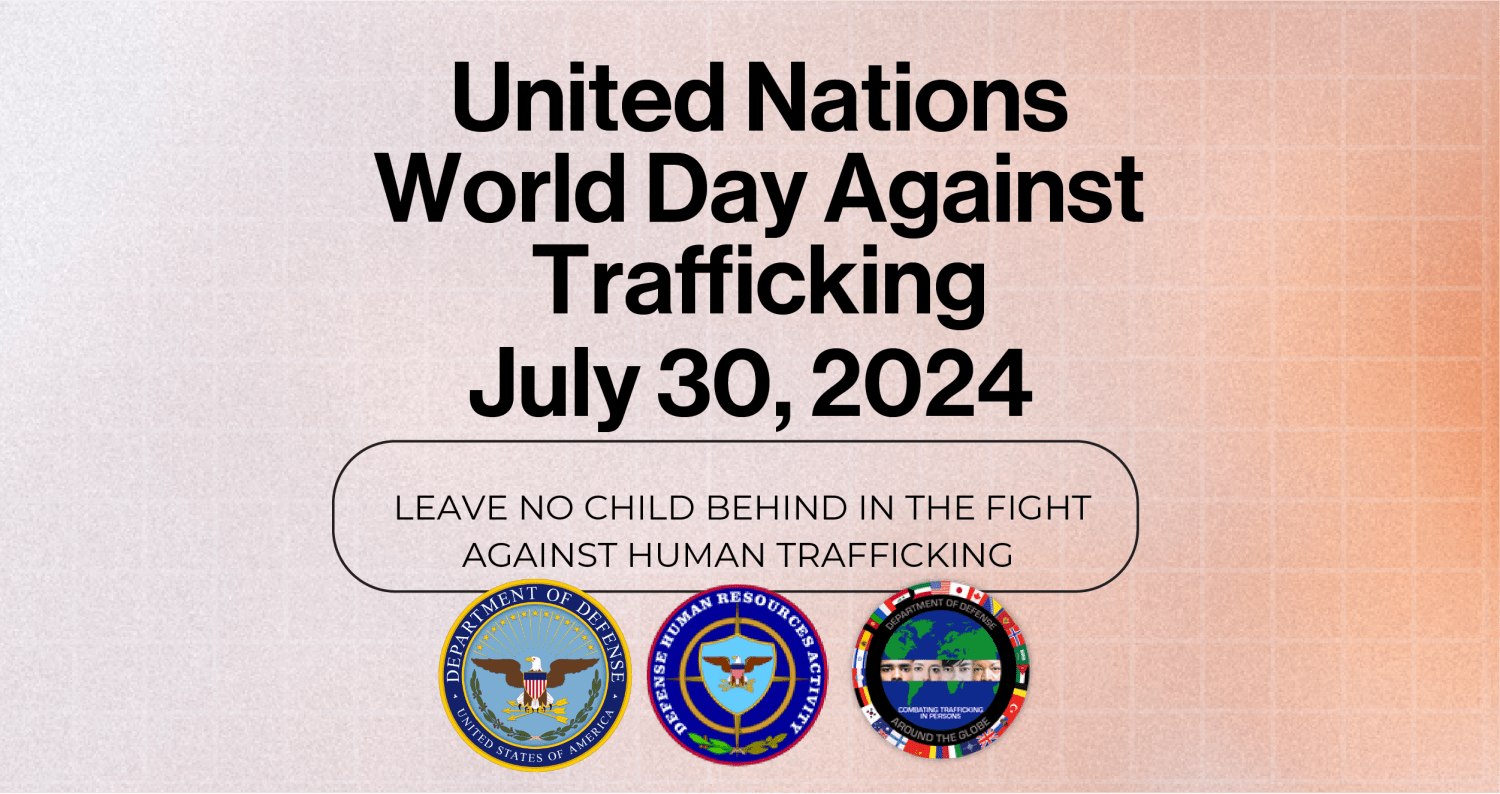Exchange Supports the Fight Against Human Trafficking on UN World Day Against Trafficking in Persons

Every year, millions of individuals worldwide are victimized by human trafficking. Established in 2013, UN World Day Against Trafficking in Persons (July 30) aims to raise awareness about human trafficking and forced labor. The Exchange recognizes and emphasizes importance of focusing on this issue to maintain global awareness and action within the organization.
The Department of Defense and the Exchange are committed to Combating Trafficking In Persons (CTIP.) The Exchange has a dedicated CTIP working group that includes associates from Human Resources, the Office of the General Counsel, the Office of the Inspector General, Procurement, Merchandising, Loss Prevention and Region teams as needed. The group collaborates to ensure compliance with DoD instructions, recommends corrective actions based on investigative findings and participates in DoD quarterly meetings. Vice President of Contingency Plans Roger Neumann, the CTIP program coordinator, leads these efforts.
“My involvement began during my military service by taking annual CTIP training. At AAFES, I continued this work, focusing on training and compliance,” said Neumann. “Collaborations with DoD and local authorities, as well as the Exchange IG’s Will Davis, strengthen our efforts in preventing human trafficking at the Exchange.”
Through proactive measures, including passport checks and housing inspections in select overseas locations, the Exchange maintains compliance to prevent Trafficking in Persons (TIP) violations. All associates take required CTIP training upon hire. Associates in the Office of the Inspector General and Defense Acquisition roles take specialized training as required by DoD.
All associates can stay vigilant by monitoring at-risk populations, such as contracted associates overseas who are neither U.S. nor host country citizens, and ensuring open communication with associates so they feel safe to report potential TIP violations.
TIP can also occur in local neighborhoods and communities, so awareness is crucial. The Exchange has collaborated with local authorities, such as the Dallas County Sheriff’s Office, to help associates effectively address TIP in their own communities.
Incidents and suspected TIP violations can be reported through the chain of command, by visiting the IG’s SharePoint page and DoD’s CTIP website.
“TIP is a worldwide challenge,” Neumann said. “The more that we as associates know about TIP in terms of what to watch for and how to report, the better we can be in terms of being good global citizens.”




